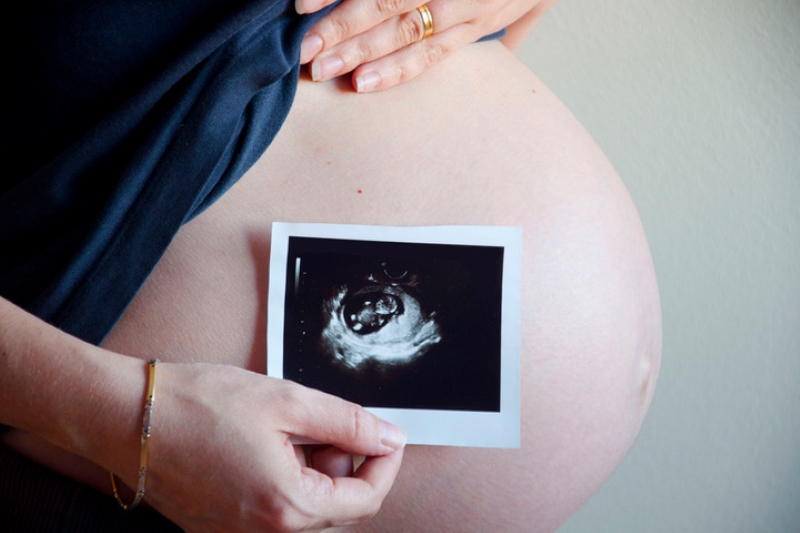
Pregnancy symptoms that might justify a trip to the emergency room
When to go to the emergency room? Pregnancy can be a joyful and exciting time. But it can also seem overwhelming and even frightening
Some expectant and new mothers may feel compelled to rush to the emergency room at the slightest symptom, while others hesitate, worried about overreacting.
Although medical emergencies are rare in pregnancy, it is best to err on the side of caution and check for symptoms, calling your gynaecologist or seeking treatment.
Pregnancy, examples of when it is useful to go to the emergency room
During pregnancy, symptoms may occur that should be listened to carefully, and which should recommend a trip to the emergency room.
They may, in fact, reveal ongoing pathologies that are dangerous for mother and foetus.
They are:
- chest pain
- Excessive vomiting
- Heavy vaginal bleeding
- Loss of consciousness
- Convulsions
- Severe abdominal pain or cramping
- Threat of sudden and spontaneous birth
- Sudden swelling of the arms, legs or face
- Severe headaches
- Sudden changes in vision
- Shortness of breath
- Very high blood pressure of 160/110 or higher
Some of these symptoms may be a sign of extrauterine pregnancy, pre-eclampsia, miscarriage or a medical emergency such as a heart attack or stroke.
In the weeks following delivery, it is important to remain vigilant about your health.
Along with the above symptoms, go immediately to the emergency room for signs of postpartum depression, such as intense sadness or thoughts of harming yourself or the baby.
When might it be safe to call your doctor first?
The gynaecologist is certainly the first point of reference in pregnancy: before you get assailed by anxiety, a phone call might be important.
He or she will probably advise referring you to the emergency room, because as mentioned above, in pregnancy it is always better to err on the side of caution.
This will probably be the case if you have symptoms that include:
- A high fever, which could indicate an infection
- Excessive cramping
- Frequent nausea or vomiting
- Light bleeding or spotting that disappears after a couple of hours
- Onset of irregular contractions: we may advise you to wait until contractions come every five minutes, then tell you to go into labour and delivery
- Premature going into labour
- Pain or discharge at caesarean section or episiotomy site
Pregnancy and the Emergency Room: remember that you are by no means alone
Every patient and every pregnancy is different, so keep an open line of communication with your gynaecologist or midwife during and after pregnancy.
No question is too trivial, in your eyes and in the eyes of the operator of the 112 / 118 Operations Centre.
Keeping the doctor or 112 operator informed can improve and speed up treatment.
The chances of an emergency occurring during pregnancy are quite low, but it is better to be prepared.
Talk to your gynaecologist or midwife about symptoms to watch out for and how to handle them.
In the event of an emergency, your pregnancy affects everyone around you, including your health care provider.
Read Also
Emergency Live Even More…Live: Download The New Free App Of Your Newspaper For IOS And Android
Pathologies In Pregnancy: An Overview
Integrated Pregnancy Test: What Is It For, When Is It Done, Who Is It Recommended For?
Trauma and Considerations Unique to Pregnancy
Guidelines for the Management of a Pregnant Trauma Patient
How To Provide Correct Emergency Medical Care To A Pregnant Woman With Trauma?
Pregnancy: A Blood Test Could Predict Early Preeclampsia Warning Signs, Study Says
Trauma During Pregnancy: How To Rescue A Pregnant Woman
Travelling During Pregnancy: Tips And Warnings For A Safe Holiday
Diabetes And Pregnancy: What You Need To Know
Emergency-Urgency Interventions: Management Of Labor Complications
Seizures In The Neonate: An Emergency That Needs To Be Addressed
Postpartum Depression: How To Recognise The First Symptoms And Overcome It
Postpartum Psychosis: Knowing It To Know How To Deal With It
Childbirth And Emergency: Postpartum Complications
Childhood Epilepsy: How To Deal With Your Child?
Thyroid And Pregnancy: An Overview
Folic Acid: What Is Folin Used For?
What Is Folic Acid And Why Is It So Important In Pregnancy?
Dermatosis And Itching In Pregnancy: When Is It Normal And When To Worry?
Pregnancy: What It Is And When Structural Ultrasound Is Necessary
Preeclampsia And Eclampsia In Pregnancy: What Are They?
Chloasma: How Pregnancy Alters Skin Pigmentation
Toxoplasmosis And Pregnancy: The Most Frequently Asked Questions
Toxoplasmosis: What Are The Symptoms And How Transmission Occurs
Toxoplasmosis, The Protozoan Enemy Of Pregnancies
Neurotoxoplasmosis (NTX): Toxoplasma Encephalitis
Nutrition During Pregnancy: What To Eat And What To Avoid
What Drugs Should Be Avoided During Pregnancy?
Ramadan Fasting For Pregnancy And Breastfeeding Mother
Postpartum Depression: What It Is, Symptoms, Diagnosis And Treatment
Constipation In Pregnancy, What To Do?
Congenital Heart Disease And Safe Pregnancy: The Importance Of Being Followed From Before Conception


